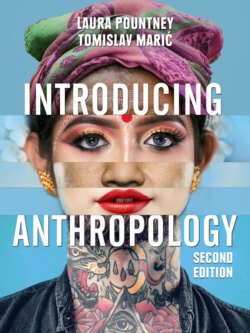Читать книгу Introducing Anthropology - Laura Pountney - Страница 88
Life histories
ОглавлениеThe life history, or personal narrative of one’s life, is an important research method in anthropology for learning about how culture is experienced and created by individuals. It involves collecting and recording individuals’ experiences, and can be done either by the individual writing down their own life story or by using semi-structured or unstructured interviewing, often tape-recorded, which the researcher then writes up.
Life histories are a rich source of insight both into a person’s individual experiences, presented from their own point of view, and into the wider social forces that affect their lives. For example, they can provide an insight into how war affects those who live through it. This approach, like other kinds of ethnography, places most importance on the person’s own interpretations and explanations of their experiences.
However, life histories obtained through interviews require the researcher to be able to empathize with the subject and to have good listening skills. Such interviews are also very time-consuming and labour-intensive. They rely upon the interviewee’s memory recall, which can sometimes be distorted, unclear or lacking altogether, and they are also unrepresentative of the population as a whole. So, even though they may give us an insight into one person’s experience, that might not be representative of other people’s experiences at that time.
